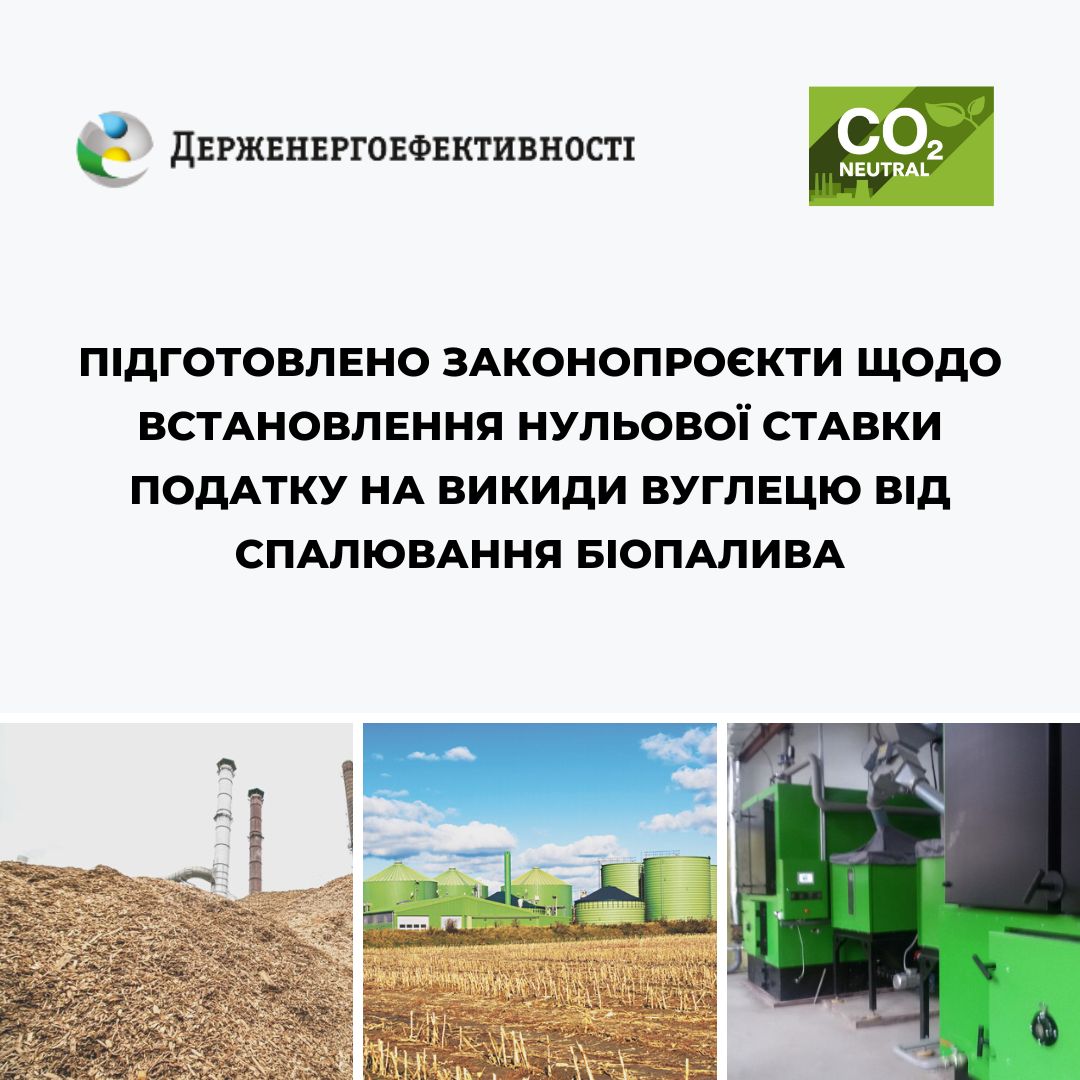The State Energy Efficiency Agency of Ukraine has developed bills to stimulate energy production from biomass


In order to apply in Ukraine generally accepted world practices regarding the CO2-neutrality of biofuel and to stimulate its use for energy production, the State Agency on Energy Efficiency and Energy Saving of Ukraine (SAEE) together with the Ministry of Energy of Ukraine has prepared the following draft laws:
- "On amendments to the Tax Code of Ukraine regarding the establishment of a zero tax rate for CO2 emissions for installations that produce such emissions as a result of burning biofuel";
- "On amendments to the Law of Ukraine "On Alternative Fuels" regarding the creation of the register of installations using biofuel as the only type of fuel."
The main provisions of the draft laws provide for:
- exemption from payment of tax on CO2 emissions for burning biofuel;
- creation of the Register of installations using biofuel as the only type of fuel, to ensure the administration of the zero rate of CO2 tax.
The fact is that today producers of energy from biofuels pay taxes on carbon dioxide emissions at the same level as other enterprises in accordance with Art. 240 of the Tax Code of Ukraine. However, this does not correspond to world practice.
In accordance with the provisions of Annex IV to Directive 2003/87/EC, the coefficient of greenhouse gas emissions for biomass is zero.
In addition, according to the Clean Development Mechanism Methodology of the United Nations Framework Convention on Climate Change, carbon dioxide emissions from burning biomass are not taken into account, because biofuels are considered CO2-neutral fuels, as their combustion produces as much carbon dioxide as was absorbed by plants during their growth.
Therefore, the adoption of the above-mentioned draft laws will contribute to bringing Ukrainian legislation in accordance to European legislation in terms of exempting companies that burn biofuels from taxation on CO2 emissions. This will remove one of the barriers in attracting investors to install biomass-fired plants and cogeneration plants.
As a result, favorable conditions will be created for gas consumption substitution, local fuels usage for thermal energy generation, which is 10% cheaper for the population and budget institutions, bioenergy clusters and new jobs creation.
Communication and PR Department